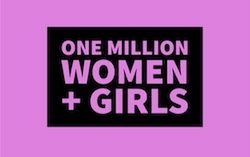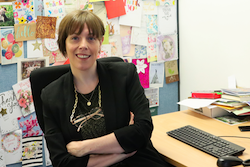Abuse of female politicians is a threat to democracy as well as gender equality. MARY HULL sifts the depressing evidence and looks at some of the campaigns against it.
I along with many others, have been vocal in my dismay at the Labour Party not allowing Jamie Driscoll to stand in the forthcoming North of Tyne Mayoral elections. It’s a travesty of justice in my eyes, so I was looking forward to hearing him speak as an Independent candidate at a recent hustings event.
 The debate was organised by the excellent One Million Women and Girls campaign, which is challenging candidates to pledge practical steps to improve the lives of women and girls in the north east. But when I took my seat and looked up at the platform my heart sank. Six candidates – five men, one woman. I immediately felt weary and angry. I had, of course, known the make-up of the candidate list but seeing the lack of women in front of me felt so inevitable and visceral.
The debate was organised by the excellent One Million Women and Girls campaign, which is challenging candidates to pledge practical steps to improve the lives of women and girls in the north east. But when I took my seat and looked up at the platform my heart sank. Six candidates – five men, one woman. I immediately felt weary and angry. I had, of course, known the make-up of the candidate list but seeing the lack of women in front of me felt so inevitable and visceral.
As a woman and a member of the ILP since 1984, I have long been aware of the challenges women in the political arena face. In the age of social media those challenges have magnified exponentially, in volume and seriousness, to a stage where the struggle for gender equality appears to be going backwards.
Watching Diane Abbott in a debate in the House of Commons this March trying and failing, time and time again, to speak about her own verbal abuse at the hands of a Tory donor seemed to epitomise what many female MPs are subjected to.
Her outrageous treatment seemed designed to humiliate her when she had already been subjected to racist and misogynist abuse. I am not a great political fan of Abbott, but I have admired her endurance over three decades and the battles she’s had to fight as an ethnic minority woman in the political arena.
Nothing can justify her treatment, played out at the heart of national politics and televised for all to see. Not only was it unjust, it is part of a dangerous pattern, often repeated online, an environment where female politicians are treated as fair game and objectified, where verbal and physical abuse are seen as justifiable.
Worldwide problem
Male politicians are not exempt from online harassment, of course, but it is women who are disproportionately targeted, not only in the UK but worldwide. The Open University’s Christiana Julios wrote in an article for the LSE that: “Research by the Inter-Parliamentary Union on online abuse of women parliamentarians worldwide found that 81.8 per cent of those surveyed in 39 countries had been subjected to various forms of psychological violence.”
 This is borne out in the UK where a high percentage of women politicians having been targeted, with ethnic minority women 35 per cent more likely to receive abuse than any other group. In the same article Julios points to a recent report by the Fawcett Society called A House for Everyone, which revealed that 93 per cent of women (and 76 per cent of men) say online abuse or harassment impacts negatively on their experience as a parliamentarian.
This is borne out in the UK where a high percentage of women politicians having been targeted, with ethnic minority women 35 per cent more likely to receive abuse than any other group. In the same article Julios points to a recent report by the Fawcett Society called A House for Everyone, which revealed that 93 per cent of women (and 76 per cent of men) say online abuse or harassment impacts negatively on their experience as a parliamentarian.
The types of abuse are too numerous to do justice to but they affect MPs from all parties. The example that particularly shocked me was when Labour’s Jess Phillips (above) received 600 threats of rape in one night in 2018. Six hundred!
So women take precautions – for themselves and their families – develop risk plans, talk to police, turn off social media when it becomes too much. Or they leave. Or, after weighing up the risks and potential toll on them and their loved ones, they decide not to enter politics in the first place. What a loss and what a threat to democracy.
There are a range of good initiatives trying to fight back. The Jo Cox Foundation, chaired by former home secretary Jaqui Smith, has produced a report with 28 recommendations for tackling the abuse, endorsed by all parties.
And there’s the Westminster Foundation, which supports female parliamentarians internationally. And the north east’s One Million Women and Girls campaign I’ve already mentioned, which encourages women to vote and have a voice in politics. These are all worthy of support. Opposition must be broad-based.
Back at the mayoral debate, I watched and listened. What I saw was a testament to the value of a female-led and female-chaired event. It was respectful, no-one was allowed to dominate, and women in the audience asked questions pertinent to their lives and professions. It was, in fact, a genuine pleasure.
And the icing on the cake? I started to question my own assumptions about who to vote for – always the sign of a good discussion. Labour’s Kim McGuinness stood out for me and even edged ahead of Driscoll.
I’m still musing but I left a little less angry and a little more determined to support whatever initiatives I can to shift the balance.
—-
The One Million Women and Girls campaign Facebook page is here.
See also: ‘It’s My Party … and I’ll Cry if I Want To’ by Mary Hull.


